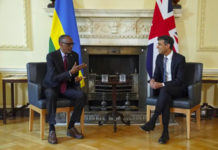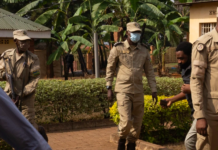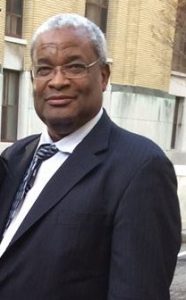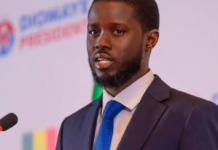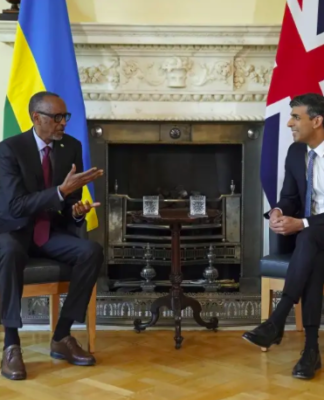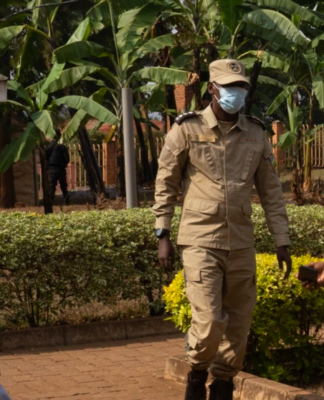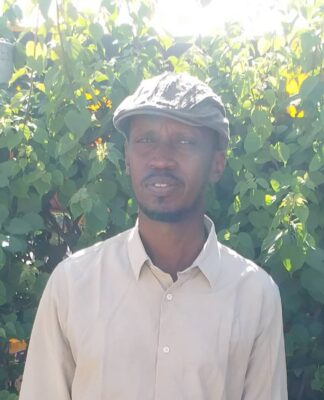Open letter to Chair Security Council
H E Ambassador Abdellatif Aboulatta
President of the Security Council
P304 East 44th Street – New York, N.Y 10017
5th August 2017
The entrenchment of President Kagame in power is a threat to peace and security in the Great Lakes Region.
On the 3rd and 4th of August 2017, Rwandans performed the ritual of confirming Paul Kagame as President of Rwanda for the next 7 years and potentially beyond. President Kagame rightly announced on his 1st day of campaigning in his home town of Ruhango on the 14th of July 2017, that the elections were over following the referendum of December 2015 in which he got the score of 98% of the votes, almost equal to the score in Iraq under of Sadam Hussein, 100% of votes in 2002, and of Assad of Syria, nearly 90% of votes in 2014 and North Korea 99.99% in 2016.
As elections are indeed over, the Speaker of the Senate Hon Bernard Makuza used the rally of President Kagame in Nyamasheke on the 28th of July 2017 to drum up support for his re-election in 2024 for other two five year terms that the new constitution allows him. The calculated disclosure by the second personality in the country is an important pointer to what is to come. In a similar move, after the 2010 presidential elections, the then Minister of Home Affairs Sheikh, Fazil Harelimana of PDI party, had drummed up support for an amendment of the constitution to allow President Kagame to stand again in 2017. It happened as suggested 5 years later. And why should President Kagame not bend to people’s demand again in 2034 to stand for the following two terms and why not agree to be proclaimed life President after 2034 and popular demand?
What is happening is no surprise because as Prof. F. Reyntjens, expert on the Great Lakes, pointed out more than ten years ago,” the complacent attitude of the international community has incrementally, step by step, contributed to a situation that may well be irreversible and that contains seeds for massive new violence in the medium or long run”[1]. As a matter of fact, as the Centre for Strategic and International Studies report (2011) highlights: “the apparent stability masks deep seated tensions, unresolved resentments and an authoritarian government unwilling to countenance criticism or open political debate.
Freedom House report 2015, considered Rwanda as “no free country”; Reporters without Borders’ report 2015, indicates that Rwanda ranks 161 out of 180 surveyed in terms of the freedom of the media; a study by the UCLA sociologist Andreas Wimmer, in which Rwanda has the third-highest level of political exclusion in the world (behind Sudan and Syria). The Global Peace Index Report for 2015 written by “The Institute for Economics and Peace”, on the trend of peace in the world ranks Rwanda 139th out of 162.Unfortunately, as the 2009 report from the Commonwealth Human Rights Initiative points out “Rwanda’s excellent public relations machinery has succeeded in hiding the exclusionary and repressive nature of the regime”.
The public relations machinery has allowed President Kagame to enjoy impunity from prosecution for his involvement in the plunder of DRC resources, war crimes and crimes against humanity by his army, supporting a rebel movement that has devastated Eastern DRC, and for destabilising neighbouring countries in order to make Rwanda look as an oasis of stability.
- In 2003 the final Report (Document S/2002/1146) of the Panel of Experts on the Illegal Exploitation of Natural Resources and other Forms of Wealth of the Democratic Republic of Congo, that the plunder of natural resources in the DRC had become the motive and engine of the war that has cost more than 3 million lives and recommended the establishment of “an international mechanism” to prosecute high-ranking military and government officials, including relatives of Presidents Yoweri Museveni of Uganda and Paul Kagame of Rwanda. It also called for the United Nations to impose arms and trade embargo on Rwanda, Uganda and Burundi for plundering Congo’s mineral riches in their 2 1/2-year war to topple the former government of Kabila”.
- On October 1, 2010, the UN Office of the High Commissioner for Human Rights published a report mapping the most serious violations of human rights and international humanitarian law committed in the Democratic Republic of Congo between March 1993 and June 2003 against Rwandan Hutu refugees and Congolese Hutu. According to the report “the apparent systematic and widespread attacks described in this report reveal many inculpatory elements that, if proven before a competent court, could be characterized as crimes of genocide”.
- A panel of UN experts confirmed that the Rwandan regime supported the M23, a rebel movement, known for brutal violence and led by known war criminals. He was never punished for supporting the group apart from suspending aid for a short time.
- UN experts’ report quoted in the testimony of Assistant Secretary Linda Thomas-Greenfield Bureau of African Affairs, U.S. Department of State, before the Senate Foreign Relations Committee, stated that “recruitment of Burundian refugees – including children – may have occurred in Rwanda in the past year, with training provided to facilitate their participation in armed groups seeking to overthrow through violent means the Government of Burundi”[2].
One need not be a political expert to know that the chaos in the Great Lakes has been greatly caused by impunity, absence of the rule of law and gross violation of human rights. For the case of Rwanda is the cycle of political violence inside the country is not a product of congenital brutal hatreds between Hutu and Tutsi or lack of economic progress but rather the political behaviour of elites who use group grievances and exclusion patterned along ethnicities to mobilise political support, while external support to successive repressive regimes has played a vital role in compounding conditions that have led to political violence. Sadly, the same conditions and the same external support are quite visible today. “Those who make peaceful revolution impossible make violent revolution inevitable”: John Fitzgerald Kennedy. And everyone is aware that as highlighted in the Universal Declaration of Human Rights: “if man is not to be compelled to have recourse, as a last resort, to rebellion against tyranny and oppression, that human rights should be protected by the rule of law”. Rwanda has never witnessed the current tyranny before.
The re-election of President Kagame means that the following policies will continue.
- arbitrary or unlawful killings; torture; harassment, arrest, and abuse of political opponents, human rights advocates, and individuals perceived to pose a threat to government control and social order; security forces’ disregard for the rule of law; and restrictions on civil liberties; restrictions on the registration and operation of opposition parties, hence denying citizens the ability to change their government through free and fair elections”[3] .
- all forms of repression, intimidation and detention of political activists, journalists and human rights activists by the Rwandan authorities; individuals and other activists detained or convicted solely for exercising their rights of freedom of expression, association and peaceful assembly (ref EU parliament resolution (2016/2910(RSP) on the situation in Rwanda, the case of Victoire Ingabire of October 2016:
- Repression across borders including elimination of critics. President Kagame vowed after the assassination of his former chief spy, Patrick Karegeya, that anyone who betrays his country (him) would suffer the same fate wherever he will be. Past examples include i.e. the assassination of Colonel Patrick Karegeya in South Africa, former Internal Affairs Minister Seth Sendashonga, Member of Parliament Lizinde Theoneste and a business am Bugirimfura in Nairobi, journalist Charles Ingabire in Uganda, three assassination attempts on the life of General Kayumba Nyamwasa and foiled assassination attempts on two British citizens of Rwandan origin.
The UN Special Rapporteur on the rights to Freedom of Association and Peaceful Assembly in Rwanda (2014), Mr. Maina Kiai, noted: “a society without room for critical voices to speak freely and peacefully is unsustainable”.
The Rwandan opposition political platform would like to invite the Security Council to take up its responsibility and rein on President to release all political prisoners, open the political space and to accept a highly inclusive national dialogue to agree on constitutional and legal instruments that reassure every Rwandan.
The political platform is composed of political organisations Amahoro PC, FDU – Inkingi, PDP – Imanzi, PS – Imberakuri and the Rwanda National Congress – RNC. These political organisations have members from all ethnicities in Rwanda (Hutu-Tutsi and Twa) with a diverse life history and include persons who were members of the RPF but were disillusioned by its political trajectory, members of political party’s active in Rwanda since 1991, as well as persons who never belonged to any political party before. We are to provide political structure which is an alternative to the ethnic dictatorship built by President Kagame along extremely narrow lines within the tutsi group and which is leading to a political dead end.
We would be very pleased to send a delegation to explain our vision on how we can defuse the explosive situation created by the repressive regime of Paul Kagame and build a genuinely reconciled nation at peace with neighbours.
Yours sincerely
Etienne Masozera
Chair of the Platform.
1 (819) 431-2167
[1] Prof. F. Reyntjens African Affairs, Vol. 103, No. 411, April 2004, pp. 208-9 [1].
[2] http://www.ibtimes.co.uk/burundi-rwanda-accused-training-burundian-rebels-un-experts-claims-1541866
[3] https://www.state.gov/documents/organization/252929.pdf

